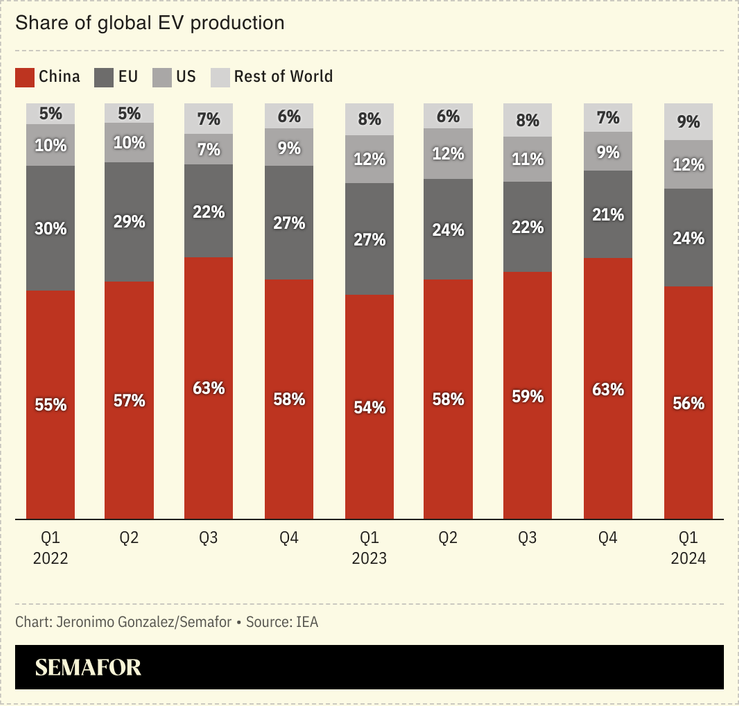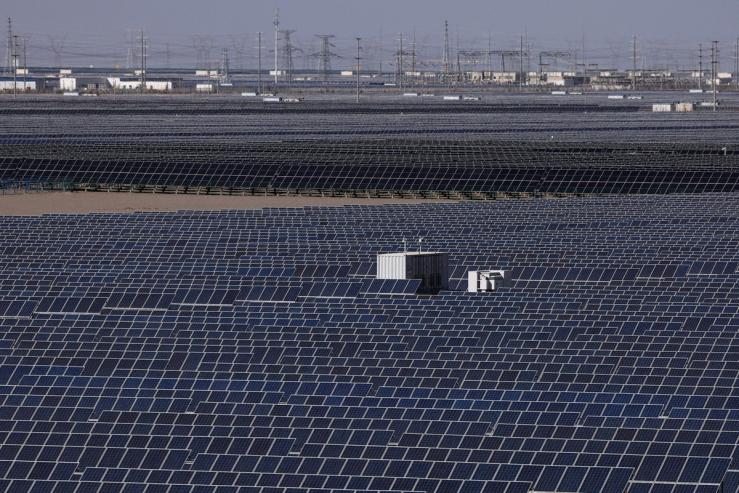The News
China and other developing nations said that trade restrictions were contributing to rising global emissions, a move that comes in response to the European Union’s recent decision to impose import tariffs on Chinese electric vehicles.
The Chinese delegation to COP29 requested that the climate summit in Baku, Azerbaijan from next week include talks on “unilateral restrictive trade measures,” according to a copy of the submission seen by The New York Times.
“Concerning trends towards unilateralism, trade protectionism and the fragmentation of international cooperation jeopardizes trust and, consequently, ambitious climate action,” it read.
SIGNALS
Conflict between trade barriers and green goals
China’s progress on green tech could help to accelerate the energy transition in other parts of the world, but trade barriers risk dealing the sustainability agenda a “devastating blow,” an economics expert wrote in Project Syndicate. Beijing could bypass some of those obstacles by channeling more foreign direct investment toward green energy projects in advanced economies, an approach that is less likely to threaten domestic jobs, he argued.
The planet ‘doesn’t have the luxury to wait’ for more diverse supply chains
The EU should rethink some of its trade restrictions on China, because — unlike in the United States — it simply isn’t providing enough in the way of finance to meet emissions reduction targets through domestic manufacturing alone, a Chatham House expert wrote. The bloc should instead focus on the “next generation” of low-carbon technologies, where it could have a comparative advantage, he added. Ultimately, the planet “does not have the luxury to wait” on a more diversified green energy supply chain, which could take more than a decade to establish, an economist argued for the Atlantic Council.

Climate change is also affecting global trade patterns
Countries with a comparative advantage in climate-vulnerable sectors like agriculture and tourism will be forced to diversify their economies as extreme weather events become more frequent, the World Trade Organization wrote in its 2022 report. Trade openness is actually part of the solution here, the WTO argued: It allows for wider access of climate-resilient infrastructure, and higher levels of economic growth mean more financial resources to invest in adaptation strategies.



